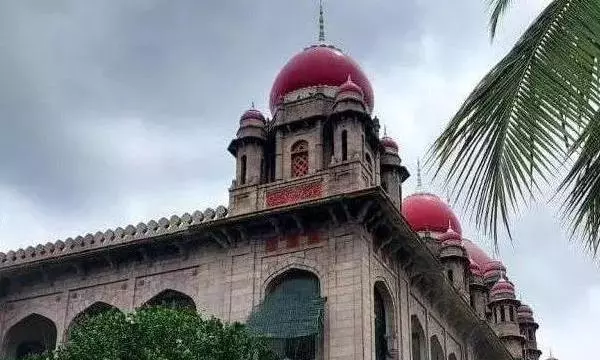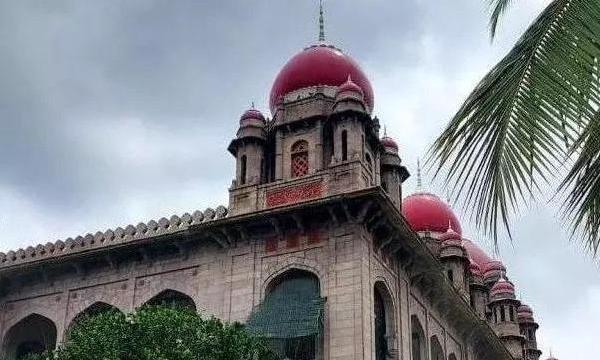
Hyderabad: A two-judge panel of the Telangana High Court on Monday directed the State Authorisation Committee for Organ Transplant to re-consider afresh a plea for renal transplantation. The panel comprising Chief Justice Alok Aradhe and Justice J. Sreenivas Rao was dealing with a writ appeal filed by Anne Siva Ram. Earlier, the appellant filed the writ petition challenging rejection of his case for approval of kidney transplantation by the committee. It is the case of the appellant that he was to undergo renal transplantation and though his family was ready to donate a kidney, they were declared ineligible. Seeing his plight, his family friend Mondi Ravi voluntarily came forward to donate kidney. It is the grievance of petitioner that the committee, on assumptions and presumptions, with a mere suspicion of altruistic nature, rejected the application. The said rejection was challenged before the Appellate Authority constituted under the The Transplantation of Human Organs and Tissues Act 1994 which allowed the appeal, remanded the matter to committee for fresh consideration. Pursuant thereto, it is contended that committee passed the order impugned which discloses non-application of mind. The single judge, while refusing to substitute the opinion of the Authorisation Committee and override its decision, relied on written instructions and observed that “Authorisation Committee, after careful examination of the proposed donation case, has clearly recorded that the donor Ravi works for the petitioner, there is a big financial disparity between the donor and recipient, the recipient has young children of 8 years and 6 years age and the committee is not convinced regarding altruistic nature of donation. It is further recorded in the impugned proceedings that in the physical interview conducted by the authorisation committee in the presence of the doctors, there is no clarity established about the love and affection towards the donor and the recipient. The committee was not convinced with the donation proposal after interviewing the donor.”
Ram argued before the panel that impugned order is silent and devoid of reasons, and that the committee cannot improve their case by way of written instructions by making new statements not included in the impugned order. The panel accordingly remanded the matter back to State Authorisation Committee for organ transplant for fresh consideration and to pass speaking order within 10 days from today.
Tribunal cannot condone delay, says HC
Justice Nagesh Bheemapaka of the Telangana High Court set aside an order of the co-operative tribunal. He declared that the tribunal cannot rely on the Limitation Act to condone delay in appeals filed before it under the Co-operative Societies Act. The judge was dealing with a writ petition filed by S. Tej Kumar. The petitioner and his wife are employees of BHEL and in litigation over the non-allotment of a plot to them in the BHEL Housing Area for its employees. Earlier, the petitioner had challenged his non-inclusion in the list of members of the BHEL Co-operative Housing Society. An award was passed in his favour in December 2007. He sought execution of the same in the City Civil Court. The Principal Junior Civil Judge decreed execution in October 2009. Consequent upon the allotment and execution the petitioner also obtained permissions in November 2009. An appeal was filed to set aside the award made in 2007 with inordinate delay. The co-operative tribunal by the impugned order condoned the delay which was challenged before the High Court. Setting aside the order of the tribunal, Justice Nagesh Bheemapaka said that the tribunal had no jurisdiction to condone delay by taking cognizance of the Limitation Act. He said that the provisions of the Limitation Act empowering condonation of delay was a power vesting in the Civil Court. The tribunal not being the Civil Court could not have exercised such jurisdiction.
HC hears death penalty case in POSCO offence
Justice K. Surender and Justice Anil Kumar Jukanti of Telangana High Court will hear a referred trial plea filed by the state seeking confirmation of the death sentence imposed against Gaffar Ali, a migrant labourer from Bihar for raping and murdering a 5-year old girl. The plea is filed for confirmation of capital punishment imposed on the convict by the Fast Track Special Court for Expeditious Trial and Disposal of Rape and the Protection of Children from Sexual Offences Act (POCSO) cases at Sangareddy under Section 302 Indian Penal Code, 1860. (IPC) Section 302 of the IPC prescribes punishment of murder. The grandparents of the five-year-old victim left their granddaughter with the security guard on October 16, 2023, to go to work. Under the guise of offering the girl a refreshing drink, the inebriated accused told the security guard that he knew the girl and brought her along. Later, the accused took her to a cotton field, raped her and then killed her with a knife after giving her a refreshing drink that was tainted with alcohol. The Special POSCO (FTS) Judge Court at Sangareddy found the accused Gaffar Ali guilty and sentenced him to capital punishment. However, the defence counsel argued that though semen was found on the clothes, the DNA test did not prove that it belonged to the accused. Thus, it is contended that there is no record linking the semen to the accused. The panel posted the matter for further hearing.
5-decade old plea admitted in HC
Justice T. Vinod Kumar of Telangana High Court admitted a writ plea complaining a five decade delay in paying compensation under the Land Acquisition Act. The judge was dealing with a writ plea filed by Dattari, seeking compensation for the acquisition of land covering approximately 320 guntas in Zaheerabad village, Sangareddy district, acquired by the railway department in 1968. The petitioner alleged that the land belonged to his father and was acquired by South Central Railway for constructing railway tracks without paying any compensation. However, the petitioner presented no documents substantiating his ownership. The judge questioned the lack of documentation, noting the absence of any claims made by the father of the petitioner during the initial acquisition process in 1964-65 and only filing a representation in the year 2024. The judge also observed the unusual timing of the claim, highlighting the surge in real estate value in recent years, which, as the judge pointed out, may have prompted the petitioner to seek compensation now. Counsel for the petitioner requested additional time to gather relevant documentation to prove ownership of the land. Accordingly, the judge posted the matter for further adjudication.
